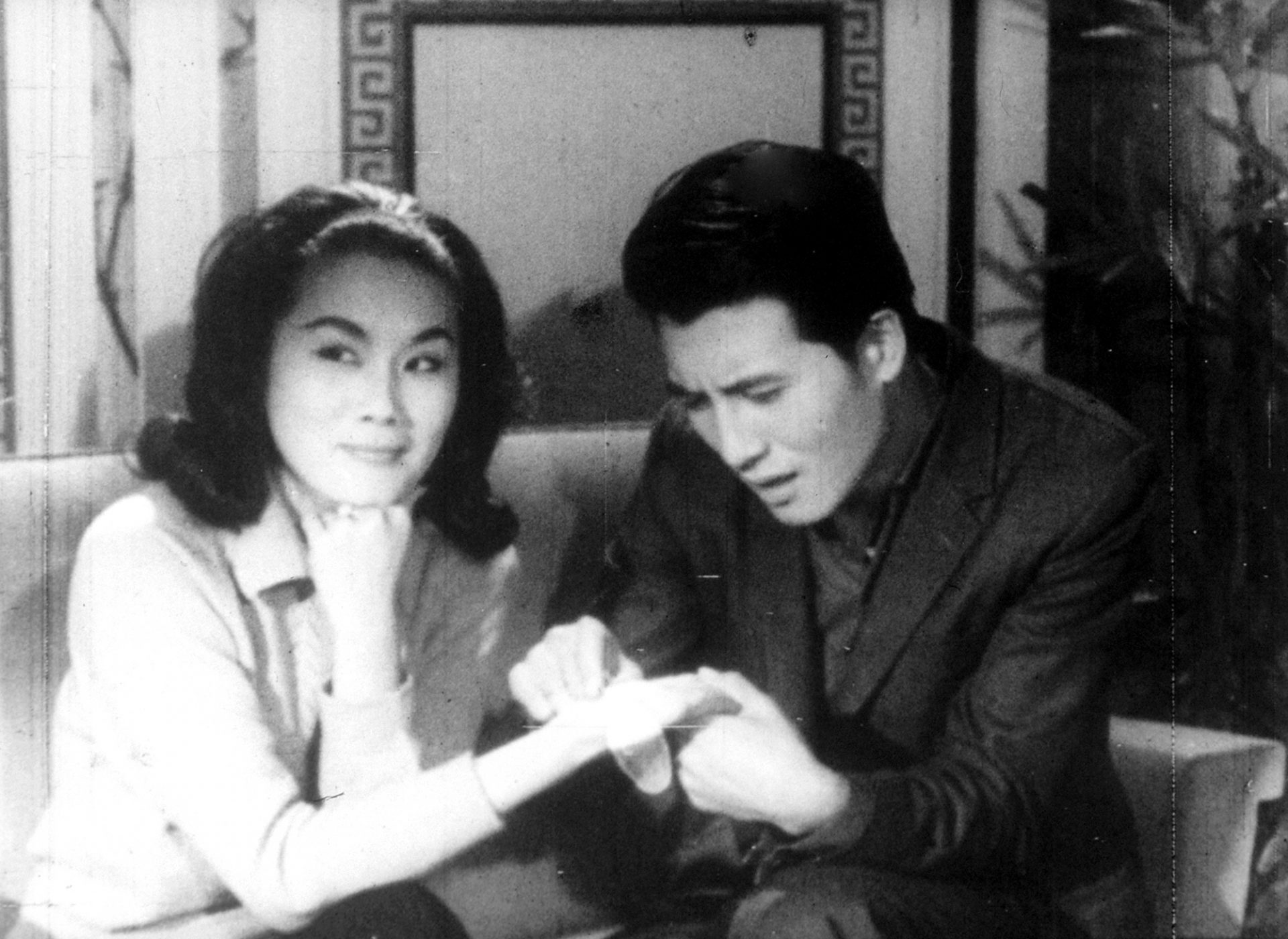Set in China during the Sino-Japanese War of the late 1930s, performer Tsui-Ying (Pai Hung) is driven to exact vengeance when her father is killed by a Japanese airstrike. She becomes a spy for the resistance in Shanghai and falls in love with Ling-Yun (Ko Chun-Hsiung); however, she is forced by her superiors to begin a relationship with prominent Japanese collaborator Chao-Chun (Tien Tsing), eventually becoming his wife. Tsui Ying effectively performs her duties as Chao-Chun’s wife as he is continually attempting to hunt down the resistance with the help of his police chief Captain Wan (Hu Tou). However, the reappearance of Ling-Yun, as well as the revelations that he is not only Chao-Chun’s nephew, but is pursuing a relationship with his cousin Ai-Li (Liu Ching), results in Tsui-Ying being faced with a more intimate challenge than she is accustomed to.
Despite the title giving the impression of Swinging Sixties, Bondmania-era hijinks, the film is instead more of a wartime thriller, with Tsui-Ying maintaining her secret identity as Chao-Chun’s wife whilst dealing with the reappearance of Ling-Yun. The emphasis is placed on dialogue over action, which is wise, as the low budget isn’t enough to effectively convey any sense of action convincingly. From guns failing to show muzzle flashes when fired to incomprehensible staging that makes Tsui-Ying’s crucial foiling of attempted assassination unclear, it’s obvious that the film doesn’t work on the action front.
However, the dramatic aspects also fall short, starting with the relatively inert role of Tsui-Ying. Despite Pai’s best efforts, Tsui-Ying never convinces as a spy of any kind, with scenes showing her in disguise and contacting the rest of the resistance feeling shoehorned in to remind the audience of the espionage aspect of the plot. This is almost certainly the result of the film placing greater emphasis on Tsui-Ying’s relationship with Ling-Yun than on the activities of the resistance. Not only does this detract from the overall focus of the film, but reduces the action to static sequences set at Cho-Chun’s residence that slows the pace down to a crawl.
The chemistry between Pai and Ko helps make the earlier scenes between them work, butwhen they meet later in the film, the melodramatic material results in stilted overacting from both of them, Ko in particular. The inappropriate use of comic relief in the form of the blustering Captain Wan further undermines any sense of tension that the film attempts to create. Whilst such tonal shifts are common in East Asian cinema, a mostly serious spy thriller is the worst place to include a character like Wan and his fumbling, sub-slapstick antics.
The Best Secret Agent suffers from a lack of budget and overall direction, both literally and in terms of tone. Whilst the low budget and limited resources of the Taiwanese film industry during the 1960s must be taken into account, these factors still do not excuse the film’s obvious shortcomings – its awkwardly written script and lacklustre direction being the most prominent.
